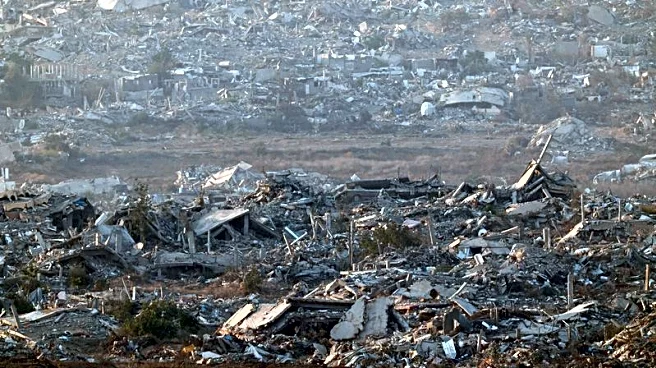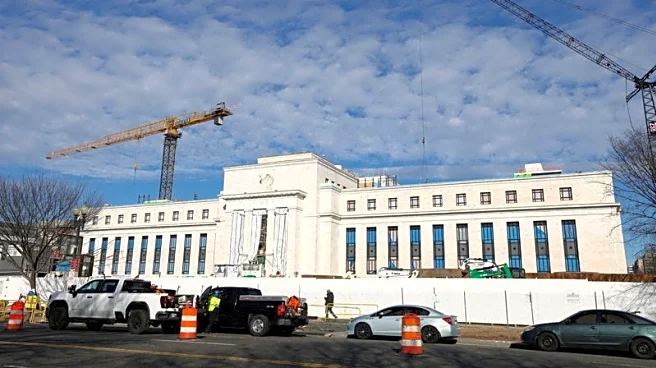What's Happening?
President Trump has announced that Israel and Hamas have agreed to the first phase of a peace plan aimed at ending the ongoing conflict in Gaza. The agreement includes a temporary ceasefire and the release of hostages held by Hamas in exchange for Palestinian prisoners. This development marks a significant step towards resolving a two-year-old war that has resulted in widespread devastation and loss of life. The plan, however, leaves unresolved issues such as Hamas's disarmament and the future governance of Gaza. Despite these uncertainties, the agreement is seen as a potential breakthrough in the long-standing conflict.
Why It's Important?
The agreement between Israel and Hamas is a pivotal moment in the Middle East peace process, potentially easing tensions and reducing violence in the region. The release of hostages and prisoners could foster goodwill and pave the way for further negotiations. However, the unresolved aspects of the plan, including Hamas's disarmament, pose challenges to achieving lasting peace. The involvement of President Trump and the U.S. administration highlights the international dimension of the conflict and the role of global powers in facilitating peace. The outcome of this agreement could influence regional stability and international relations.
What's Next?
The next steps involve implementing the ceasefire and ensuring the release of hostages and prisoners. Stakeholders will need to address the unresolved issues, such as Hamas's disarmament and the governance of Gaza. The international community, including the U.S., may play a role in mediating further negotiations and supporting reconstruction efforts in Gaza. Monitoring the situation for compliance with the agreement and potential escalations will be crucial. The success of this phase could lead to more comprehensive peace talks and a shift in regional dynamics.
Beyond the Headlines
The agreement raises ethical and humanitarian considerations, particularly regarding the impact on civilians in Gaza. The plan's focus on security and governance could lead to long-term changes in the political landscape of the region. The involvement of international forces in Gaza's security highlights the complexity of achieving peace in a conflict-ridden area. The cultural and social implications of the agreement, including the potential for reconciliation and rebuilding, are significant. The role of the U.S. and other international actors in shaping the future of Gaza and the broader Middle East is a critical aspect of ongoing discussions.











